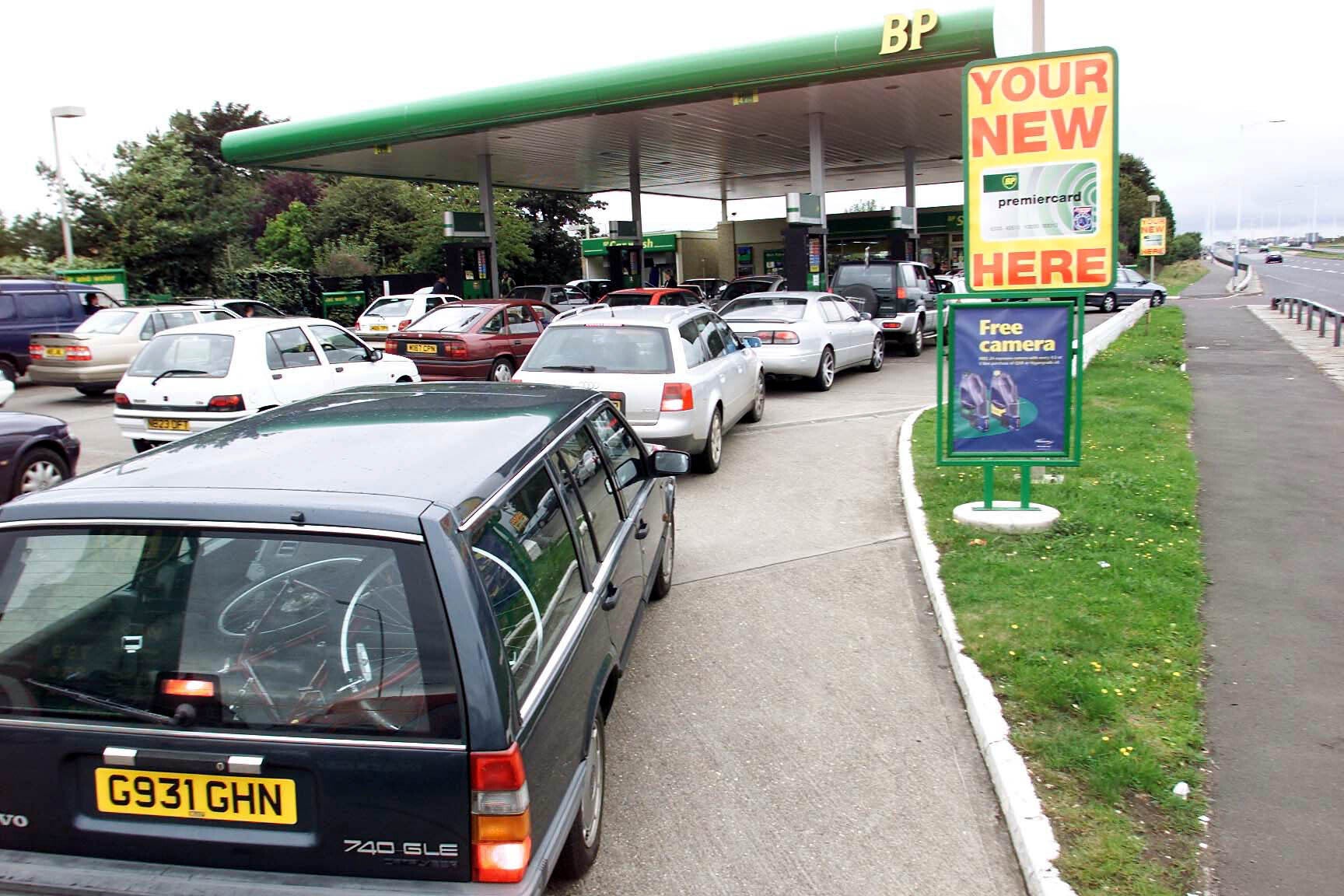Shoppers make fewer supermarket trips to save petrol amid fuel crisis
Kantar said visits to forecourts in the South of England jumped by 66% on Friday September 24 at the height of the fuel shortage.

Your support helps us to tell the story
From reproductive rights to climate change to Big Tech, The Independent is on the ground when the story is developing. Whether it's investigating the financials of Elon Musk's pro-Trump PAC or producing our latest documentary, 'The A Word', which shines a light on the American women fighting for reproductive rights, we know how important it is to parse out the facts from the messaging.
At such a critical moment in US history, we need reporters on the ground. Your donation allows us to keep sending journalists to speak to both sides of the story.
The Independent is trusted by Americans across the entire political spectrum. And unlike many other quality news outlets, we choose not to lock Americans out of our reporting and analysis with paywalls. We believe quality journalism should be available to everyone, paid for by those who can afford it.
Your support makes all the difference.Shoppers have cut back on trips to the supermarket to save petrol amid Britain’s fuel crisis, new figures show.
The latest data from Kantar revealed that the average household made 15.5 grocery store visits in the past four weeks – the lowest monthly figure since February.
The report showed that visits to forecourts in the South of England jumped by 66% on Friday September 24, at the height of the fuel crisis, as motorists queued to fill up their tanks ahead of the weekend.
Overall grocery sales fell 1.2% to £28.8 billion year on year in the 12 weeks to October 3, although they remained 8.1% higher than before Covid-19, according to the figures.
Supermarket sales have been easing back since May due to tough comparisons with a year earlier, when coronavirus lockdowns and hospitality closures saw grocery sales soar.
But the drop in supermarket trips meant a rise in the proportion of groceries bought online – up 12.4% in the past month compared with a 12.2% rise in September and following seven months of declines.
Shoppers also bought more during each store visit, with a 6% rise in trips where people spent more than £100.
Kantar added that there was further inflation pain for consumers, with like-for-like grocery prices up 1.7% in the past four weeks as the supply chain woes filtered through to supermarket shelves.
Fraser McKevitt, head of retail and consumer insight at Kantar, said: “In real-world terms, the average household had to spend an extra £5.94 on groceries last month than they did at the same time last year.
“The typical household spends £4,726 per year in the supermarkets, so any future price rises will quickly add up.
“Shoppers will look to manage their spend by carefully selecting the products and retailers that offer them the best value.”
The latest monthly figures showed that fears of shortages over Christmas prompted some Britons to stock up early, with 449,000 consumers buying their Christmas pudding in September – a 76% rise year on year.
Sales of toys also rose 5% on last year, while gift wrapping products grew by 10%.
But Mr McKevitt stressed there was no general panic0buying in stores despite the supply chain problems.
Anxiety around supply issues has not translated to panic-buying – festive or otherwise
“These are still relatively small numbers and anxiety around supply issues has not translated to panic-buying – festive or otherwise,” he said.
The report showed that as the private equity takeover battle for Morrisons reached fever pitch, the chain suffered a fall in market share to 9.8% in the 12 weeks to October 4, from 10.1% a year ago.
US private equity firm Clayton, Dubilier & Rice agreed a £7 billion takeover of the Bradford-based supermarket at the beginning of the month after a dramatic bidding auction.
Tesco was the only one of the major chains to report a rise, with its share increasing from 26.9% to 27.5% in the latest quarter, while Sainsbury’s and Asda held firm at 14.9% and 14.4% respectively.
Aside from Tesco, Lidl was the only other retailer to achieve growth in the quarter, with sales up 0.4% to give it a market share of 6.2%, which matched its previous record high in May 2021.